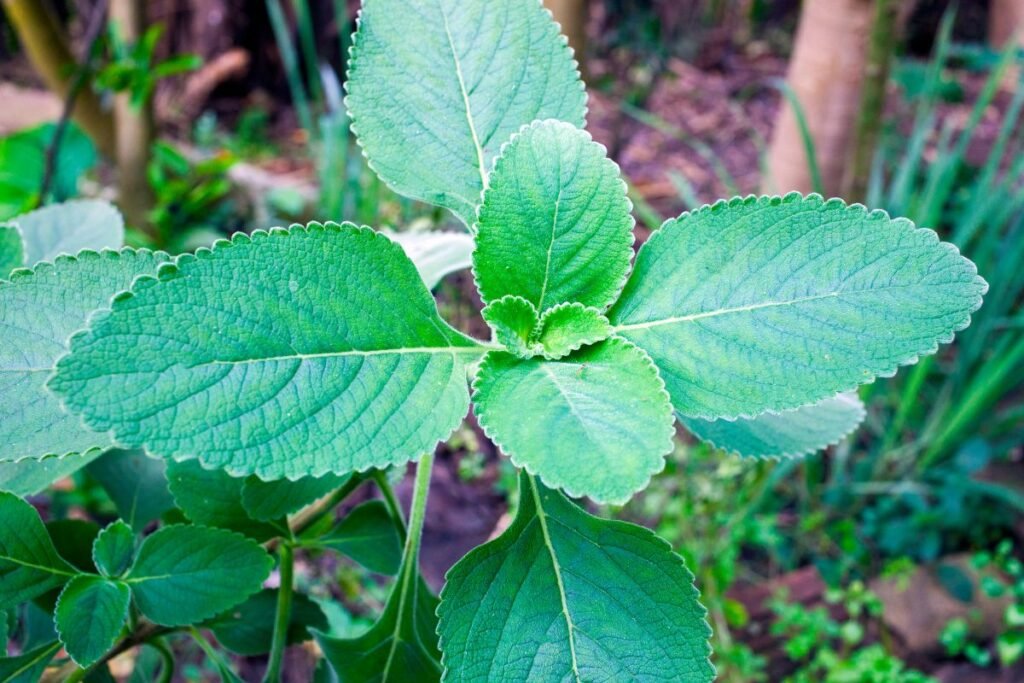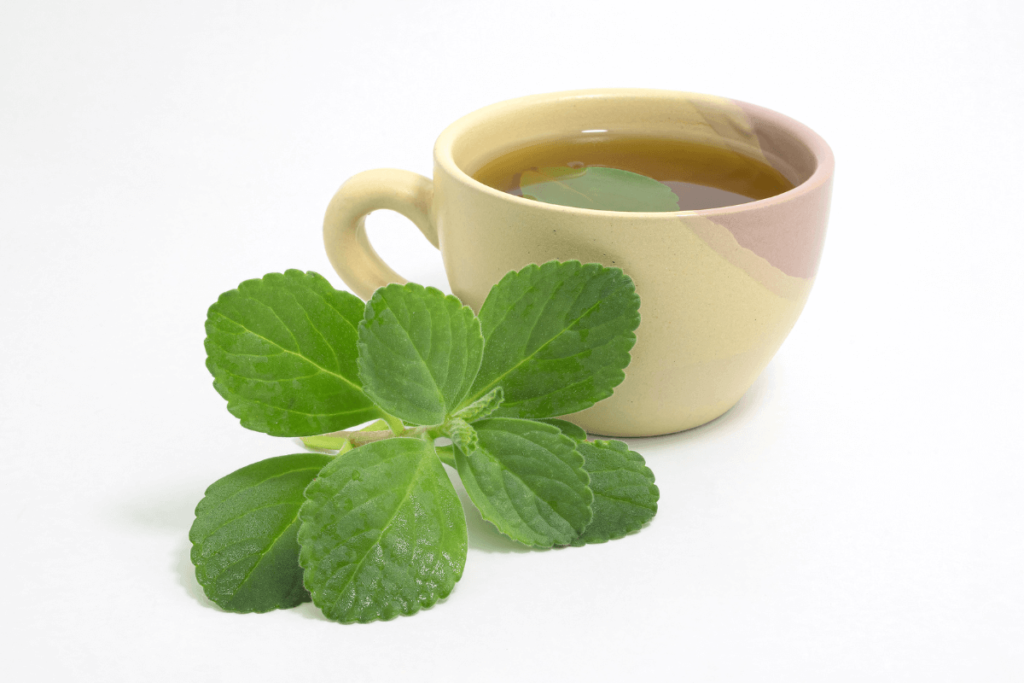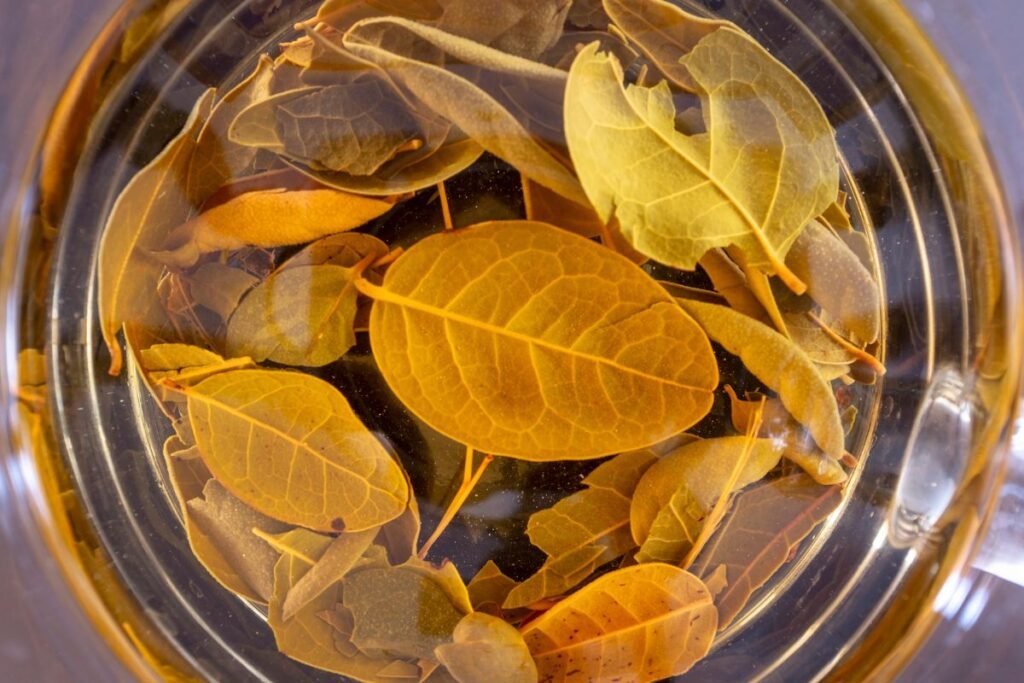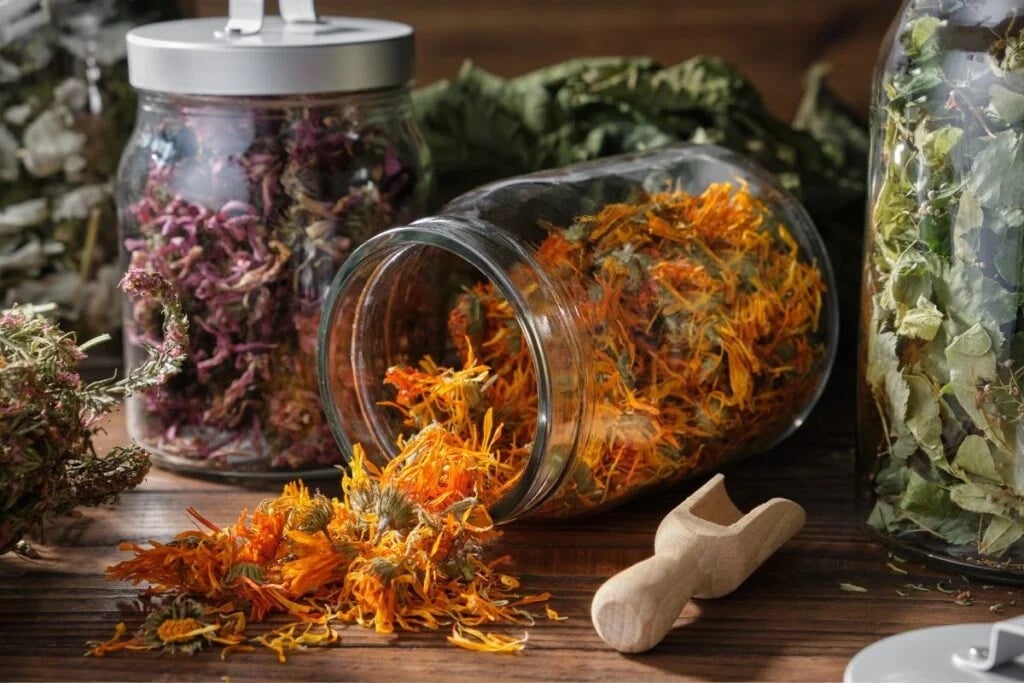Peumus boldus, popularly known as boldo, is an aromatic evergreen shrub native to South America, particularly Chile and Peru. It has yellowish-green fruits and delicate white flowers.
Boldo leaves have a strong and spicy scent, similar to camphor, and they’re widely used as a culinary herb. When brewed in tea, boldo has a minty, refreshing, and slightly bitter taste.
In this guide, we’ll explore the numerous boldo tea benefits that you can enjoy, as well as potential side effects and preparation methods to consider before brewing this beverage.

What Are the Benefits of Boldo Tea?
Boldo tea has a long history of use as a medicinal herb dating back to hundreds of years ago when the indigenous people of Chile started using it. However, there’s insufficient evidence to support the safety and efficacy of boldo tea, so speak with your doctor before drinking it.
1. Boosts Your Immune System
A study comparing 13 different medicinal herbal teas showed that boldo tea possessed one of the highest antioxidant activities. Antioxidants are vital substances that protect your cells from damage caused by harmful free radicals in the body.
Having a diet that’s rich in antioxidants can slow down aging and reduce your risk of illness, including heart disease and cancer.
2. Promotes Good Digestion
The European Medicines Agency allows the use of boldo tea for dyspepsia or indigestion, and mild gut spasms. It’s also utilized by some to enhance the appetite, reduce blood glucose, relieve flatulence, and treat constipation, but clinical trials supporting these claims are limited.
According to the Handbook of Herbs and Spices, boldo leaves have been shown to stimulate digestion, due to a plant chemical called boldine.
3. Supports Liver and Gallbladder Health
In several animal studies, boldo leaves have demonstrated bile-producing properties, as well as the ability to increase urine output by 50%. As such, boldo tea is widely promoted as a choleretic (stimulates bile secretion) and a diuretic (promotes urine elimination).
There are also claims that boldo tea can treat gallstones, kidney stones, bladder infections, and other liver and gallbladder-related disorders.
4. Soothes and Relieves Joint Pain
In addition to its antioxidant properties, boldo has anti-inflammatory properties as well, according to a chemical study. That’s why boldo tea is promoted for health conditions like achy joints (rheumatism) and similar forms of muscle pain and inflammation.
It has also been used to treat a variety of other conditions, like colds, earaches, insomnia, and skin blemishes, but these are mainly based on anecdotal claims and not scientific evidence.
5. Encourages Weight Loss
Because of boldo tea’s antioxidant properties, it is said to reduce toxicity in the body and improve metabolism, speeding up your ability to burn fat.
Boldo tea is also reported to support weight loss by promoting good bowel health, enhancing digestion, and stimulating the appetite.
What Are the Side Effects of Boldo Tea?

Drinking boldo tea can put you at risk for the following side effects, especially when it’s taken in excess or consumed for extended periods:
- Abdominal pain, nausea, vomiting
- Whole-body allergic reactions
- Heart rate disorder
- Paralysis, hallucinations, nervous system disturbances
Boldo leaves contain ascaridole, a colorless, pungent, and volatile oil that’s toxic to your liver, which is why it’s not recommended for you to drink boldo tea daily. When preparing your tea, ensure that all ingredients are ascaridole-free to avoid liver damage.
Because boldo can interact with different medications, drinking boldo tea might be unsafe for people taking Advil, warfarin, and other blood thinners and heart medications. You should also stop consuming boldo for at least 2 weeks before surgery to minimize the risk of bleeding.
Boldo tea can increase your risk of liver damage if you’re taking certain medications, like Tylenol, Zocor, and Diflucan, among others. It’s also unsafe for people who are taking lithium.
Additionally, medical sources state that you should avoid consuming boldo tea if you belong to any of the following groups:
- Pregnant and breastfeeding women
- Small children
- Alcohol drinkers
- People with blocked bile ducts, gallstones, or liver disease
How to Prepare Boldo Tea

One of the fastest and easiest ways to prepare boldo tea is to place a tea bag in a cup and pour hot water over it. Steep the bag for around 3 to 5 minutes to release the tea’s full flavor. Boldo tea bags are available online, in grocery stores, and in health food stores.
Another option is to use 2 to 3 whole boldo tea leaves. Add the leaves into a saucepan with water, heat until it’s boiling, and then simmer for 5 minutes. Wait for it to cool slightly before straining the leaves and drinking.
If you want to use dried and crushed boldo leaves to make your tea, follow these steps:
- Add 1 or 2 tablespoons of your dried and crushed boldo leaves to a cup or mug.
- Boil water, but let it cool for a moment to reduce the temperature a little.
- Pour 8 to 10 ounces of water over your boldo leaves.
- Steep your leaves for 5 to 15 minutes, depending on your preference.
- Strain leaves from your cup before serving.
It’s worth mentioning that boldo tea is a caffeine-free herbal tea. To minimize your risk of complications and harmful side effects, drink only one cup of boldo tea occasionally.
Final Thoughts on Boldo Tea
Boldo tea has been used as traditional herbal medicine for many years, for conditions ranging from digestive problems to liver issues, joint pain, and even weight loss.
Although some studies indicate that the leaves of the boldo plant have antioxidant benefits, there’s insufficient evidence to prove boldo tea’s effects in treating illnesses, aches, and pains.
Drinking boldo tea may also cause unwanted side effects, like stomach aches, vomiting, liver toxicity, heart rate disorders, and allergic reactions, so consult with a qualified health care professional and exercise caution when drinking.

